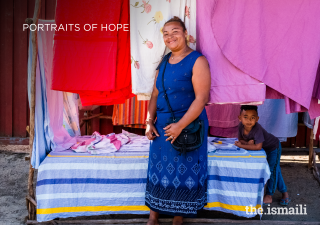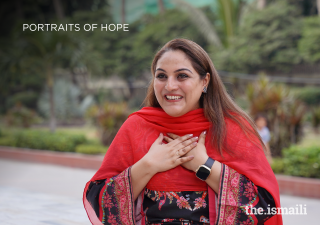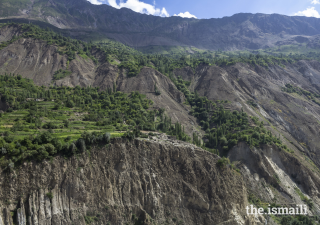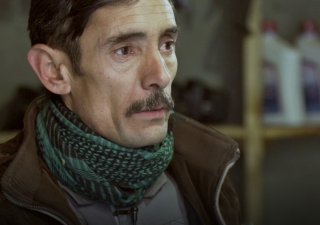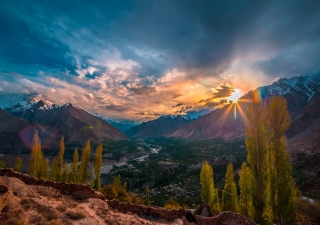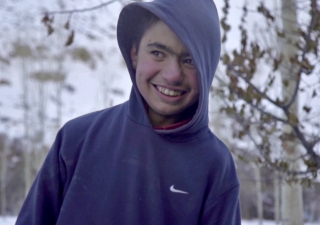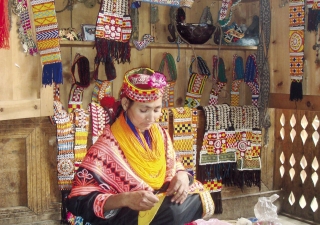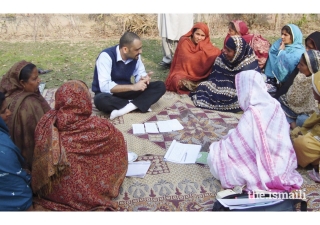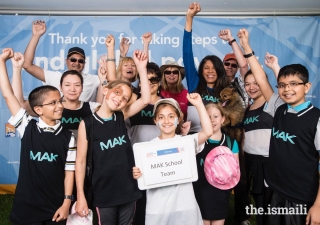Stories
Since Mawlana Hazar Imam's Golden Jubilee, Ismaili institutions around the world have prioritised Poverty Elimination as one of the long-term objectives of the global Jamat. Through identifying and addressing the root causes of poverty, dedicated volunteers are engaging in a holistic initiative that supports vulnerable families to achieve continued economic and social stability, and self-reliance.
I started working young, leaving behind my home and everything I knew to move to Toamasina, a coastal town in eastern Madagascar. The town is full of life – markets filled with goods, sandy beaches stretching for miles, and the sea breeze brushing against your skin. It felt like a fresh start, but it wasn’t easy.
After Salima’s mother passed away in 2019, something in her mind changed. “I was at home, doing nothing. I didn’t want to go back to my previous job,” she recalls. Salima came across a mentorship opportunity, which aligned with her desire to serve the Jamat. She was excited to take it on, but didn’t expect her life to change the way it did.
In Pakistan, the Ismaili community is scattered all over the country, with a substantial number residing in the mountainous valleys of Gilgit-Baltistan and Chitral. These valleys are known for their beauty and splendour, but also bear many socio-economic and environmental issues. Jamati and AKDN institutions continue to provide access to basic services in the region.
Sharifullah, a resident of Immit, in Ishkoman Valley, Gilgit-Baltistan believes prosperity lies in saving for future generations. While working as a farmer, Sharifullah barely earned enough to feed his family. “Even if I can save 10 or 20 rupees a day, I will save it. I want my children and their children to have a bright future,” says Sharifullah.
ITREB USA presents Critical Conversations, a virtual forum featuring faith-based perspectives on the questions of our time. “Social Justice in Islam: Exploring Global Poverty” features Dr. Fariyal Ross-Sheriff, Fatima Kassam, and Dr. Mehmoona Moosa-Mitha and is moderated by Chair of AKF-USA Sherina Ebrahim.
The Ismaili Council for Pakistan's Socio-Economic Development Programme supports access to quality education, so that children like Sadaqat can achieve their dreams and empower their families.
After graduation, 13-year-old Sadaqat Shah aspires to become a writer. Although he suffers from an impairment since childhood and the distance from his village to the school is 2km, he does not allow his frailty, or the stretch of road, to hinder the path of achieving his dream.
At the Global Philanthropy Forum in Washington DC in April 2009, Mawlana Hazar Imam spoke of the importance of addressing the issue of poverty. “One of the great principles of Islam, in all its interpretations,” he said, “is the elimination of poverty in society, and philanthropy’s centrality in this duty.”
Poverty is often not an issue of individual failing, but one of social justice.
From organising skills enhancement camps to leading school fundraising teams, Ismaili youth from around the world have taken on leadership roles in the movement to alleviate poverty, through economic empowerment and other measures.
Transforming Life - Story of Sirajuddin, Dubargar Upper Chitral
Sirajuddin, a resident of Dubargar, Upper Chitral used to travel to Islamabad in search of work, leaving behind his home for a better future. Despite all his efforts, he could not earn a sustainable wage. Determined to improve his financial condition, Sirajuddin signed up to receive carpentry training under the Socio-Economic Development Programme (SEDP). He now works independently in his village and supports his family.

Mawlana Hazar Imam was recently interviewed by Henri Weill, Editor-in-Chief of the French magazine La Cohorte on the occasion of his receiving the Grand-Croix of the Légion d’honneur in September last year. The interview touches on key points including the role of the Imam, the importance of civil society and the necessity of creating strong institutions that can contribute to positive growth. We are pleased to make this interview available in both French and English with the kind permission of La Cohorte.
(Interview on 29 January 2019)

